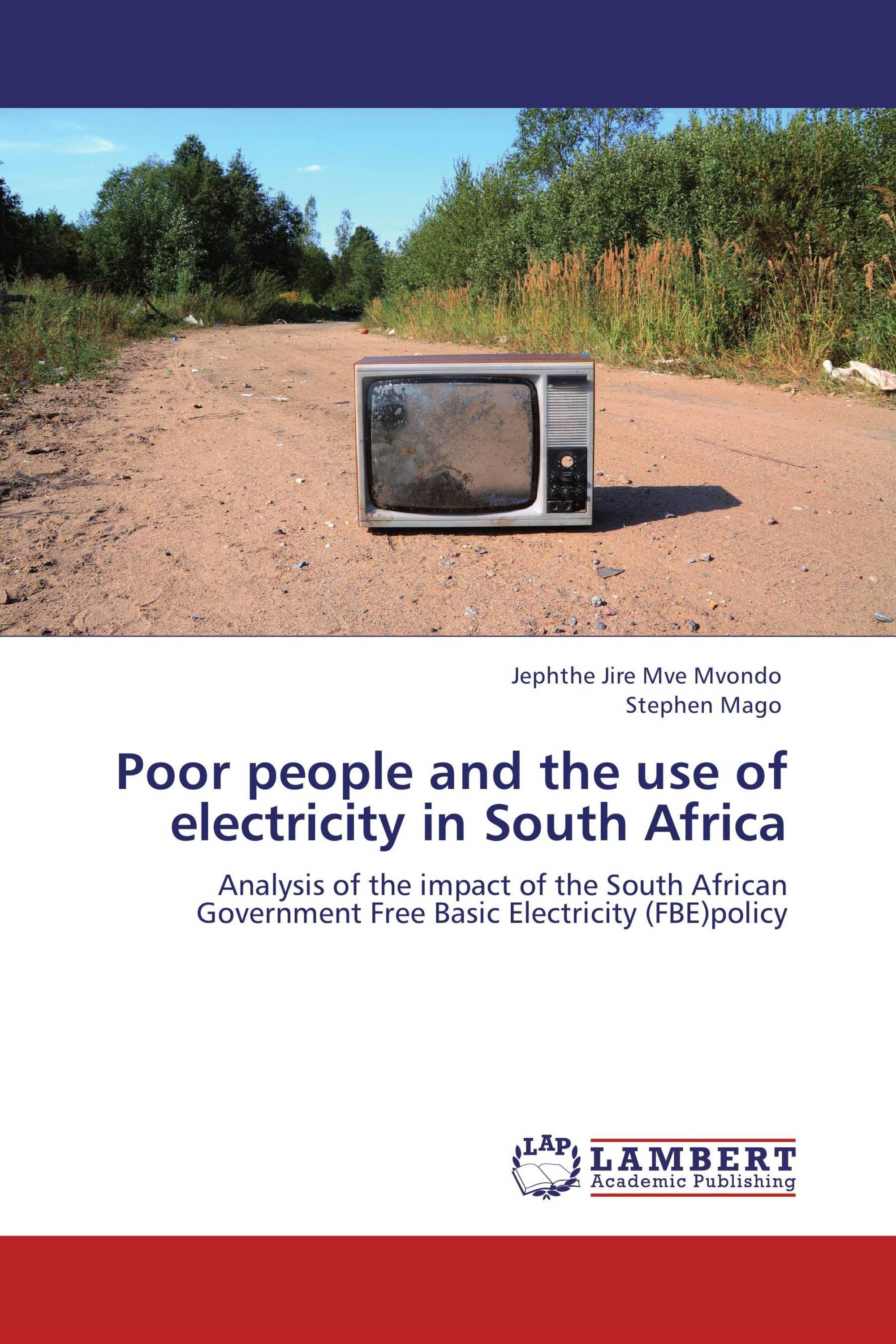Poor people and the use of electricity in South Africa
Analysis of the impact of the South African Government Free Basic Electricity (FBE)policy
€ 68,00
Empirical evidences from pro-poor electrification programmes worldwide and especially in Asia suggest that greater access to electricity by poor people leads to economic and social development at both micro and macro levels. This study investigates the impact of access to electricity on household poverty in the Eastern Cape, with focus on household income, household health and children’s education. This study used mixed research methods to investigate the research problem. The study’s main finding is that access to electricity through the FBE policy has highly contributed to the improvement of the health condition in indigent families as well as the education of children, but to a lesser degree on family income levels. In addition, indigents are of the opinion that 50 kwh of free electricity per month is totally insufficient compared to their needs, hence limiting the optimum use of electricity to improve their welfare. For greater impact of electricity on the living conditions of poor households, the study recommends to: increase the FBE allocation substantially; organise social education programmes among indigents and lastly invest in job creation through electricity.
Book Details: |
|
|
ISBN-13: |
978-3-8465-8770-6 |
|
ISBN-10: |
3846587702 |
|
EAN: |
9783846587706 |
|
Book language: |
English |
|
By (author) : |
Jephthe Jire Mve Mvondo |
|
Number of pages: |
168 |
|
Published on: |
2012-02-22 |
|
Category: |
Monographies |
